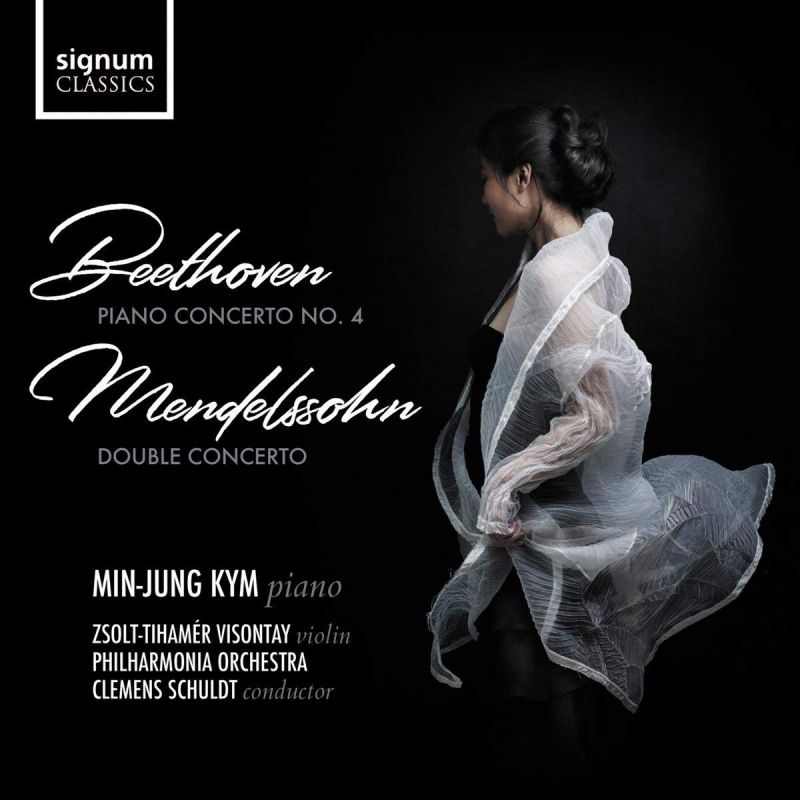BEETHOVEN Piano Concerto No 4 MENDELSSOHN Double Concerto
View record and artist detailsRecord and Artist Details
Composer or Director: Ludwig van Beethoven, Felix Mendelssohn
Genre:
Orchestral
Label: Signum Classics
Magazine Review Date: 08/2018
Media Format: CD or Download
Media Runtime: 73
Catalogue Number: SIGCD523

Tracks:
| Composition | Artist Credit |
|---|---|
| Concerto for Piano and Orchestra No. 4 |
Ludwig van Beethoven, Composer
Clemens Schuldt, Conductor Ludwig van Beethoven, Composer Min-Jung Kym, Piano Philharmonia Orchestra |
| Concerto for Violin, Piano and Strings |
Felix Mendelssohn, Composer
Clemens Schuldt, Conductor Felix Mendelssohn, Composer Min-Jung Kym, Piano Philharmonia Orchestra Zsolt-Tihamér Visontay, Violin |
Author: Andrew Farach-Colton
Happily, the musicians on this Signum recording respect the letter of the score. Pianist Min-Jung Kym and violinist Zsolt-Tihamér Visontay meet the concerto’s considerable technical demands with aplomb, although they occasionally get bogged down in its intricate, repetitive detail. They find firmer footing in the recitativo passage at 8'07", which they imbue with an improvisatory frisson. There’s both tenderness and poise in the Adagio, and if conductor Clemens Schuldt’s decision to pare the Philharmonia strings down to a solo group at 6'06" is an interpretative embellishment, at least it’s true to the score’s spirit. The finale dances with a graceful, playful ease that’s worlds away from Argerich and Kremer’s dizzying, dazzling breathlessness, but satisfies nonetheless.
Kym’s Beethoven is considerably less persuasive. Slack rhythms make her leisurely tempo for the opening Allegro moderato feel sleepy. And where’s the sense of wonder in the various sudden shifts of key and colour? The Andante’s Orphic dialogue is eloquently dramatised but the Rondo is too strait-laced, despite some lovely, lyrical playing from soloist and orchestra near the end (from 7'32").
Discover the world's largest classical music catalogue with Presto Music.

Gramophone Digital Club
- Digital Edition
- Digital Archive
- Reviews Database
- Full website access
From £8.75 / month
Subscribe
Gramophone Full Club
- Print Edition
- Digital Edition
- Digital Archive
- Reviews Database
- Full website access
From £11.00 / month
Subscribe
If you are a library, university or other organisation that would be interested in an institutional subscription to Gramophone please click here for further information.




